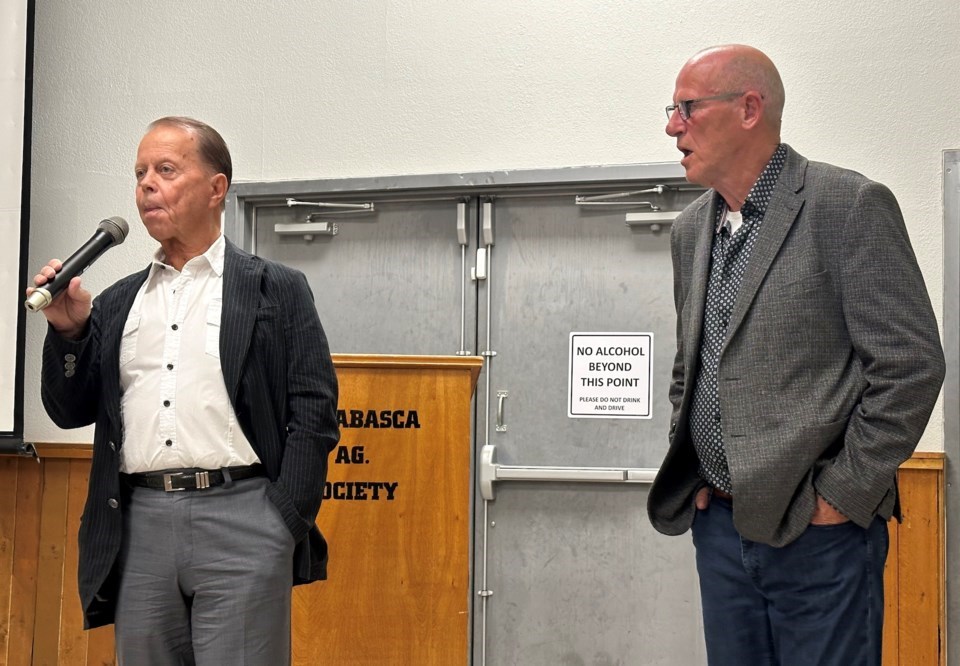A possible separatism referendum has been submitted to Elections Alberta by the Alberta Prosperity Project’s (APP) leader Mitch Sylvestre, although it will need to get approval from the courts before the group can start collecting signatures.
Sylvestre, who’s been touring Alberta with the APP to rally support for a separatist referendum since the federal election in April, filed the following question with the province’s chief electoral officer Gordon McClure: “Do you agree that the province of Alberta shall become a sovereign country and cease to be a province in Canada?”
Before the APP can begin to collect the roughly 177,000 signatures required to trigger a referendum on the question they’re going to have to see if their wording passes legal review. McClure forwarded the question to the judicial branch to see if it convenes the Constitution Act of 1982, a process he said was merely him fulfilling his duty in a non-partisan and neutral manner.
McClure flagged seven sections from the act, including section 1, which guarantees the rights contained in the Charter of Rights and Freedoms, section 3, which establishes the democratic rights of citizens, and section 35, which recognizes the existing rights of Indigenous peoples, as well as treaty rights.
In response, the APP called the move a delaying tactic; a spokesperson for the movement said they would be addressing the question in court on Aug. 6 in Edmonton.
Duelling petitions
On July 30 McClure issued the petition for another citizen initiative, the “Alberta Forever Canada,” initiative led by former Progressive Conservative cabinet minister Thomas Lukaszuk.
The petition asks: “Do you agree that Alberta should remain in Canada,” and it was initially approved June 30. In his application, Lukaszuk listed the separatist talks, as well as his belief that the majority of Albertans are, “loyal Canadians opposed to any form of separation,” as motivation for the proposal.
The initiative will have until Oct. 28 to collect nearly 294,000 signatures. Lukaszuk’s proposed question was submitted prior to the Election Statutes Amendment Act which lowered the required number of signatures by nearly 120,000.
Local voices
Since the federal election, which renewed the call for Alberta separatism, Town and Country This Week has ran a series of readers polls on its website asking questions like, “Do you feel more Canadian or Albertan,” and, “Do you agree with speakers at a UCP town hall that say Canada cannot be fixed.”
So far, the data indicates readers skew towards federalism over separatism. The May 23 poll asking about a national or provincial identity saw 222 readers weigh in, with 44 per cent (99 votes) saying they felt more Canadian, 37 per cent (83 votes) feeling more Albertan, and 18 per cent (40 votes) saying they identified with both equally.
On June 25, a question asking about how Alberta should address its relationship with the federal government gave readers four options. Some 10 per cent of readers (12 votes) wanted to explore greater provincial autonomy, 15 per cent (17 votes) wanted to negotiate specific changes that impacted Alberta’s economy, 31 per cent (36 votes) wanted to pursue a referendum on Alberta separation, and 42 per cent (49 votes) wanted to focus on building stronger relationships with other provinces to advocate for change.
Finally, on June 30, we asked readers if they agreed with speakers at a UCP town hall who said Canada cannot be fixed. Given four options — yes, no, not sure, and other — 70 per cent of respondents (108 votes) said they disagreed, while 23 per cent (36 votes) said they agreed with the statement. Six voters were not sure, and five voters selected other.



